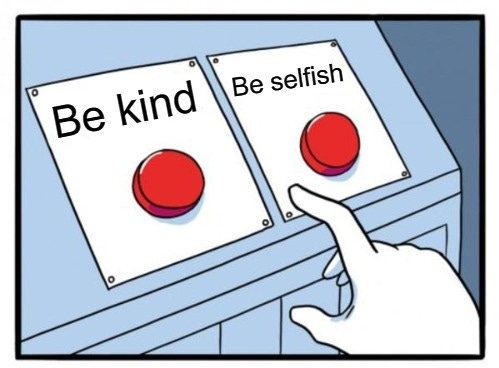The harm of “Toxic Positivity”
Toxic Positivity can be explained simply as harmful communication that disregards a person’s suffering by forcing a false positive spin on it.
Years ago I was having a serious health crisis. More specifically, I required urgent heart surgery to save my life. I have a disease called Marfan Syndrome which can cause life-threatening heart issues. As you would expect, this was an incredibly difficult and stressful time for me. I lived away from home in another county doing volunteer missionary work but was too sick to travel back. My focus was trying to stay well while waiting for surgery.
During all of this, I started noticing a strange thread of comments I would get from people as I shared the details of my health issues. Most were supportive in nature, but a significant amount displayed what I would now call “Toxic Positivity”. This ranged from comments disregarding the seriousness of things (“It can’t be that bad! You’ll be fine!”) to what I found to be the most disrespectful: if I only had more faith in God I would be healed.
I’m not going to explain the theological basis for this being an absolutely ignorant comment. I also have to clarify that such views expressed to me were rare. But if it had only happened once (it did not), that alone would have been too many times. Skipping forward to my many years dealing with a chronic illness, I can say that Toxic Positivity can generally be categorized in three ways:
1. Well meaning but oblivious
This is when people ignore the reality of the situation and try to make things better with a low effort statement.
I’m sure you’ll pull through
I’m sure this is all happening for a reason.
You’re not doing okay? Well tomorrow is another day!
This category of interactions can come across as uncaring and dismissive. Culturally, where I am from in Atlantic Canada you do not ask someone how they are unless you are prepared to listen to the answer. A simple “how are you doing today?” can turn into a fifteen-minute discussion that oftentimes include details of the unpleasantness in their lives.
Please do not dismiss the struggles of others. Instead, take a moment to listen and offer help when you can.
2. The Gas Lighters
This is when folks try to convince you that things aren’t as serious as they are. Telltale examples of this include:
“You’re probably just imagining this”
“I’m sure that it’s not a big deal”
“There’s nothing wrong with you so stop worrying”
One of the worst examples of this was when I was told by a co-worker that they researched my disease, and it was no big deal as the life expectancy was close to normal. I gently explained that, yes, perhaps I would live as long as them but my health issues would dramatically alter my quality of life.
Don’t try to manipulate someone who is suffering into a false reality of their situation.
3. The Narcissist
This must be the worst kind of false positivity. These are the people who always make everything about themselves. No matter what is wrong with you they have had it worse.
That can’t be as bad as when I had x
You think you are suffering? Well let me tell you about my day…
All you do is talk about yourself! I’m the one with problems here!
Just writing this out gets me upset. If there was a common Bladerunner-esque test for empathy, this type of person would break the machine.
When interacting with someone who is struggling, focus on them and not yourself.
How Can I Do Better?
I’ve often said that you shouldn’t ask a question if you’re not willing to hear the answer. If someone you know is struggling then please ask how they are doing and be prepared to listen to the answer with compassion and caring. Sometimes you don’t even have to ask at all. Instead, you could offer a kind word that reinforces your love and concern for them.
Simple and sincere kindness can make a difference to someone who is struggling in your life. I for one, am grateful for my caring friends and family that know this and who help lighten the load when they can.
In the end, please choose to be kind.

